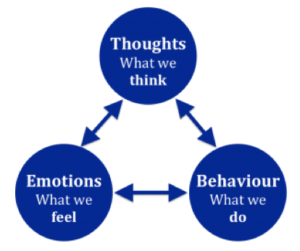08 Mar Replace your musts and shoulds with wants and wishes
For leaders, it is important to replace your musts and shoulds with wants and wishes. Every truly effective leader senses this, yet too few recognise that this simple formula empowers them to respond and act in an emotionally intelligent way to stressful situations.
When you replace your musts and shoulds with wants and wishes you avoid the traps that create stress, sap your energy and distract you from the main game.
The origin of emotions
No one but you is responsible for your musts and should. You can’t look outside yourself and blame others. Look in the mirror and see the source: You and your thoughts. The origin of your emotions is in your thinking.
Epictetus, a Greek philosopher of the AD 55-135 era wrote that ‘people are disturbed not by things, but by the views they take of them’. In other words, Epictet us knew our thoughts lead to our emotions.
us knew our thoughts lead to our emotions.
How you think – your evaluation of events, beliefs and self-talk – determines how you feel – your emotional state – and in turn how you act – your behaviours, as the diagram suggest.
You have a myriad of thoughts each day. Some of these thoughts get you into emotional difficulties. Which ones do you need to change? Albert Ellis, the founder of rational emotive behaviour therapy, identified three categories of irrational beliefs leading to emotional difficulties. Let’s look at the most common irrational beliefs and self-talk statements that can cause you so much misery.
Three major musts and or shoulds
- I must…! and I should…!
- You must…! and you should…!
- The world and conditions under which I live must…! and the world should…!
Consider these common examples of musts and should that illustrate ‘I’, ‘You’ and ‘The world’:
- ‘As leader, I must know everything that’s going on in my division’
- ‘Susan should have responded by following my instructions to the letter’
- ‘There shouldn’t be so much traffic at this time of day; I will be late’.
These are irrational beliefs. Self-talk statements like these place a burden on you and on others around you. This burden stems from you believing that you and other people and the world must be different. It’s the same if you believe that you or others – or even the world we live in – are not the way they should be. If you are right and they are wrong, then it is awful. And you can’t stand it. And you won’t tolerate it. I am sure you get where this is going…
The result for you is frustration, anger, irritability, impatience, anxiety, and even depression. And what difference do all these emotions make to the situation and others. None!
When you engage in distorted thinking like this you create demands that place unrealistic expectations of yourself and others. In turn, this leads to your emotional distress and counter-productive behaviours. These have far-reaching consequences for undermining your self-confidence, damaging relationships at home and work, affecting the quality of your decisions, and the choices you make. If prolonged, your health and happiness are damaged, perhaps permanently.
How to alleviate unhelpful thinking and feeling
First, you need to be aware of your feelings. Get in touch with them by asking yourself “How am I feeling right now?”. Stop – don’t act immediately. Take a deep breath – count slowly to 10. Observe yourself – what is your body telling you about your emotions? Consciously relax. Then ask yourself “What am I thinking right now?” Almost certainly there will be shoulds and musts in your mind.
Second, re-frame these thoughts from “I must…” to “I would prefer…” and from “I should…” to “It would be better if…”. In this way you are able to challenge musts and shoulds by asking yourself:
-
- Are my beliefs and self-talk about this situation reasonable, sensible and logical?
- Are they crucial for me in attaining my goals?
- Where is the evidence for the assumptions that I must get what I want, when I want it, in the way I want it, that others must do what I want, when I want it, the way I want it, or that circumstances or life events should unfold in a certain way?
Think about some of the times when you were less than fully effective in your interactions with others or in achieving your outcomes. List some of the musts or should that got in the way.
- What did you say to yourself about yourself?
- What did you say to yourself about others?
- What did you say to yourself about the situation?
What does this tell you about some of your irrational thinking patterns? Which of these patterns do you most frequently resort to? Which do you wish to change, accept, or let go?
You can manage your emotions better by replacing your musts and shoulds with wants and wishes.
Use the serenity prayer to escape from your musts and shoulds
Reinhold Niebuhr wrote this beautiful sentence that has become known as the serenity prayer ‘Do you have the serenity to accept the things you cannot change, courage to change the things you can, and wisdom to know the difference?’


